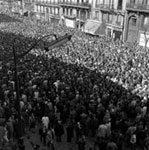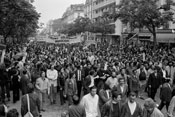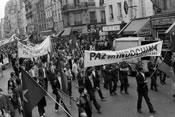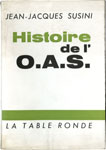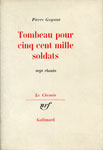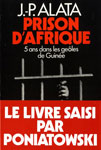In the words of the historian Benjamin Stora, right at the beginning of the pro-independence uprising in Algeria, a ‘censorship of war that never spoke its name’ was established.
During the Algerian war, the French government tried to gag the press and publishing.
Hundreds of titles and deliveries of reviews were stopped from reaching the public, often by decree to avoid a public debate, and in disregard of the law.
Intellectual reviews and a sector of the publishing world, especially Jérôme Lindon’s Editions de Minuit and the bookseller-publisher François Maspero, made a stance against this political censorship.
The French left and its intellectuals saw the Algerian war as a ‘battle in writing, which was fought right from the start and was won.’ (Michel Crouzet, 1962). Writing that aroused consciences against the State’s random decisions.
More generally, French neo-colonialism and the difficulty, indeed impossibility, for certain elites to accept decolonization, incited legal proceedings against books about the African continent.

